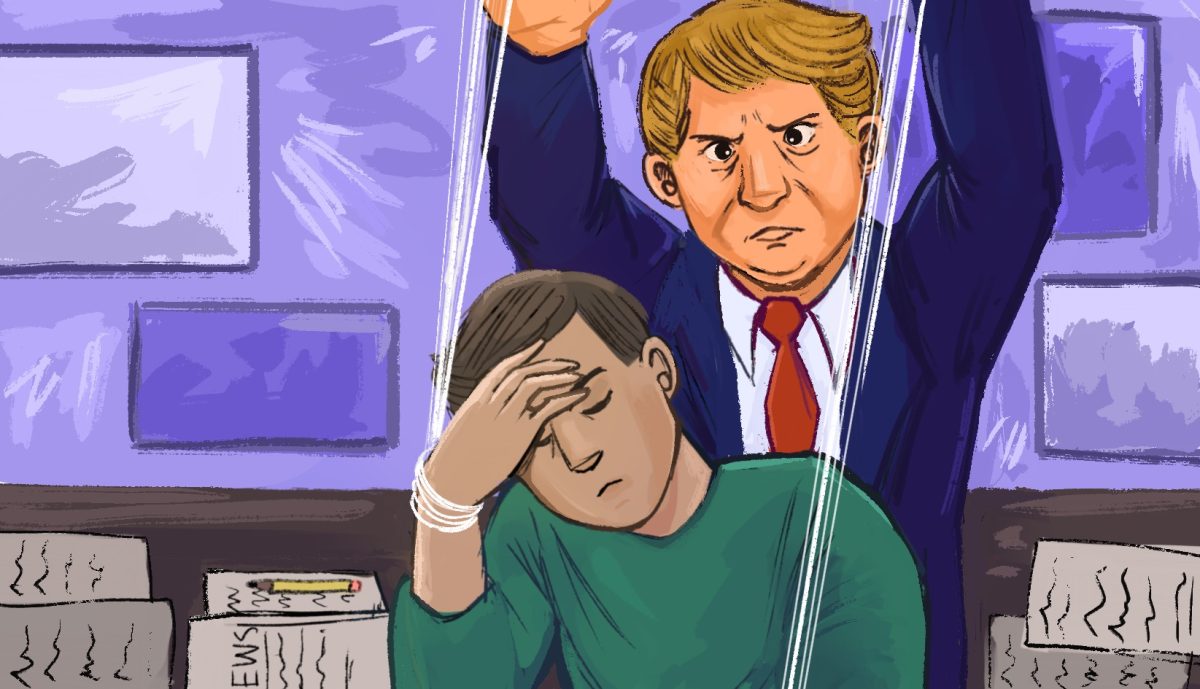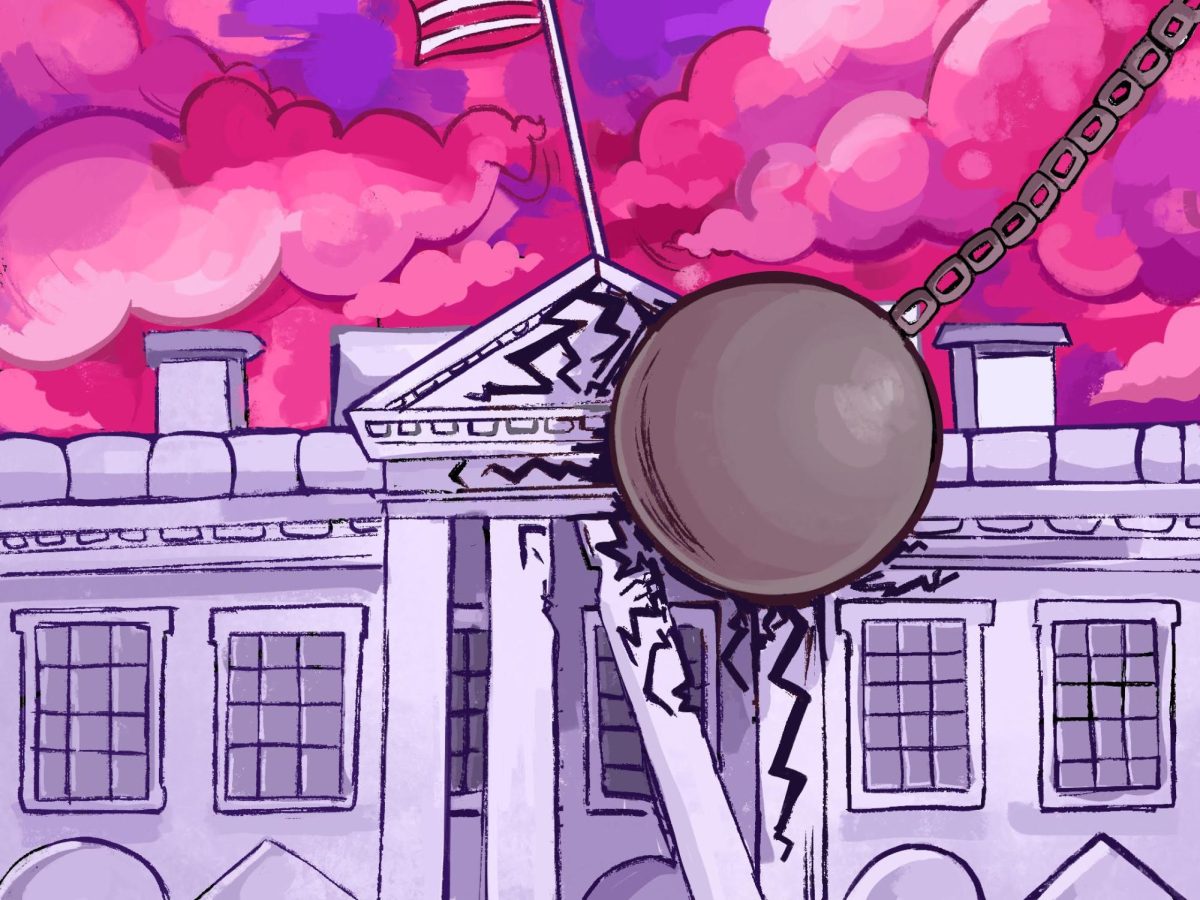Throughout his first four months as president, Donald Trump has been extending the reach of the executive branch and growing his own power. With a plethora of executive orders skirting Congress, the U.S. Department of Government Efficiency slaughtering the bureaucracy, and a lack of action from the U.S. Supreme Court, checks and balances are dying.
In the face of this dangerous administration, it is imperative that states exercise their powers to protect citizens from the overreach of the Trump administration. A few ways they can do this is by stepping up laws protecting transgender people, establishing sanctuary cities, and redistributing school funding.
The first way that state and local governments need to heighten their protection of citizens is by advocating for transgender people. Minnesota has been an advocate for transgender people since 1993, when the Minnesota Human Rights Act, which prevents discrimination based on gender identity or sexual orientation, was passed.
Although state progress has been made, Trump is reversing protections at a national level. On Jan. 20, Trump signed an executive order stating the U.S Federal Government would only recognize two sexes, male and female. In addition to this, the order forces sex assigned at birth to be denoted on all legal documents as opposed to the individual’s gender identity.
Actions like Trump’s executive order could have a profound impact on the mental health of transgender people nationwide. An article published by the Human Rights Campaign makes the negative impacts of the Trump administration’s actions clear—being forced to suppress gender identity often leads to dangerous mental health issues like depression, eating disorders, anxiety, and more. The hormonal imbalance and pressure that modern teens face intensify these effects.
However, not all hope for transgender rights is lost. State-level protections have already been helping transgender citizens in Minnesota. In February, the Minnesota State High School League was investigated by the U.S. Department of Education for allowing student athletes to compete in the category of their preferred gender. State law like the Minnesota Human Rights Act allows trans athletes to continue competing in the category that is most comfortable for them.
The fight isn’t over. The Trump administration campaigned on hatred of trans citizens, and it is the job of local communities to continue passing legislation to ensure protection of the LGBTQ+ community.
Transgender citizens aren’t the only ones that the Trump administration has been targeting.
A New Republic article explained that in recent months, Trump has abruptly increased the use of U.S. Immigration and Customs Enforcement (ICE) to deport undocumented immigrants in the U.S. to facilities in Guantanamo Bay and focus resources on determining immigrant status. As is explained in a Human Rights Watch article, these arrests are causing concern regarding the quality of life in detention centers, which as of late have become overcrowded with prisoners who are treated inhumanely by staff. Additionally, facilities separate families in foreign countries, causing problems with rejoining once they have been freed. Our state and local governments are not innocent in this process.
Cities like Minneapolis and Edina should focus on becoming sanctuary cities, areas that create legislative protections for undocumented immigrants, providing a refuge from risk of deportation elsewhere. While there are no clear definitions of a sanctuary city, our communities can eliminate 287(g) agreements, which allow ICE to utilize local law enforcement, restrict police and government officials from asking about immigration status, and enter local jails without warrant. All of these actions can help to secure the security of undocumented immigrants within our community, providing safety to all in the face of dangerous, misguided political action.
Additionally, in March, Trump signed an executive order to defund the U.S. Department of Education and leave schooling to the states.
The impact of this on funding for schools, specifically Edina Public Schools, is unclear. An email from former Superintendent Stacie Stanley warned the community of the possible loss of Title I, II, III, and IV funding, which in total makes up $2,143,800 of funding for EPS. While this funding loss will affect Edina students, underfunded areas will be harmed the most as the ED was responsible for filling funding gaps.
This means states are responsible for supplementing the funding that schools have lost. They can do this by redistributing existing tax money, facilitating community fundraisers, and abolishing the Education Savings Account (ESA) program. ESA allows students to use state funding, which would otherwise go to a public school, for a private school education. Reallocating these dollars could be helpful to fill funding gaps in public schools.
Without solutions, a lack of funding could be detrimental to local communities. In underprivileged areas, students often have less access to secondary education and become less likely to attend higher education later on. Trump’s decision to cut ED funds worsens this cycle of inequitable access, making it even more of a priority for state governments.
With Trump in office, checks and balances are depleting, and congressmen and Supreme Court justices seem to be doing nothing to stop him. By utilizing our federalist system, state governments can fight the harmful policies implemented by the Trump administration to preserve the rights of transgender citizens, protect undocumented immigrants, and ensure fair access to education to those within their communities. Edina, Minnesota, and other states and cities need to fight the dangerous overreach of power by counteracting Trump’s policies.
This piece was originally published in Zephyrus’ print edition on May 8, 2025









